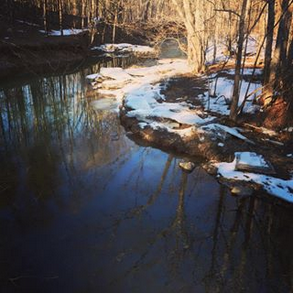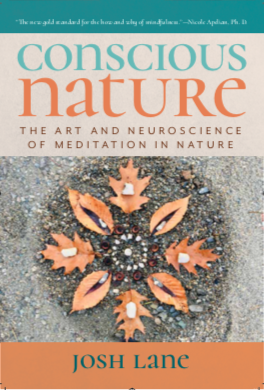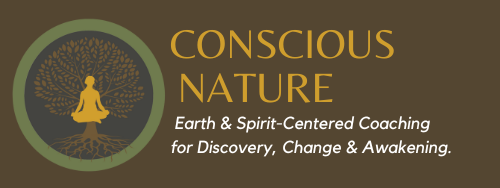An excerpt from Josh’s book, Conscious Nature: The Art and Neuroscience of Meditating In Nature

Sensory Meditation Practice: Soaking It In
Try this practice outside at your Meditation Spot, or even at the kitchen table. Simply settle into your senses, noticing what’s around you. What’s different here compared to the last time you visited this spot? What haven’t you noticed before? The differences may be subtle, but they are waiting there to be discovered.
Let your senses go where they will, scanning near and far, up and down, and all around you. Let your curiosity out to play, and simply relax into the place as you absorb what’s there.
You might find that your inner dialogue distracts you at some point. When you catch this happening, just smile and return to your senses. It’s just the brain’s habitual pathways activating.
Give yourself a good ten minutes to soak it all in. When you do this in a beautiful natural place, let yourself take in the good energy there, too. You’ll leave your meditation refreshed and with a new appreciation of what’s there around you.
Mindfulness Helps us to Look Beyond Expectation

Learning to just be and to “take it all in” is helpful because the brain has a tendency to make up its reality. Neuroscientists have found that 80% of what we call “seeing” is actually the brain making predictions of what it expects to be there; only 20% of sight is about noticing what’s really there! That’s why it pays to look, and then look again.
To compensate for this tendency, in Zen meditation, practitioners learn to achieve the state of Beginner’s Mind. A beginner doesn’t know what to expect, so her awareness is more open to what’s really there. The expert knows what “should” be there, and the trap is that because of this, she may not look closely enough. Expertise is a double-edged sword. This is one reason that Yoda said, “You must unlearn what you have learned.”

Read more in Josh’s book, Conscious Nature: The Art and Neuroscience of Meditating in Nature
Experience mindful meditations for connecting more deeply with the Nature within and around you
Expand your senses as you relax into Nature’s patterns
Feel more at home in the outdoors, and more grounded in your body wherever you go
Learn how to harness the Five Key Brainstates of Awareness for well-being and creativity
